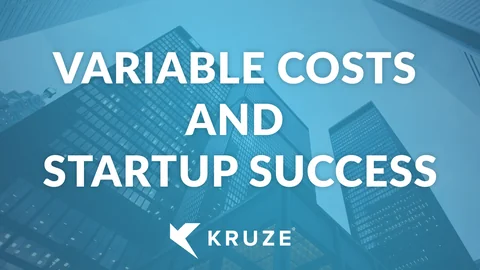
As an accounting firm specializing in venture-funded startups, we frequently work with founders who are learning the fundamentals of financial management. Understanding variable costs – costs that fluctuate based on your startup’s level of activity – can help you manage cash flow, set pricing strategies, and scale efficiently.
What are variable costs?
Variable costs are expenses that change in direct proportion to business activity, such as production levels or sales volume. Unlike fixed costs, which remain constant regardless of revenue, variable costs increase when business activity rises and decrease when business slows down. Variable costs factor into a startup’s operating leverage, which shows how efficiently a startup can turn additional revenue into profit, and venture capital (VC) firms look closely at a startup’s potential for operating leverage.
Common variable costs for startups
Some of the variable costs that startups face include:
- Raw materials and inventory (for product-based businesses)
- Marketing and advertising spend (campaign-based costs, PPC ads)
- Transaction fees (payment processing fees for Stripe, PayPal, etc.)
- Sales commissions (for performance-based compensation)
- Freelancer and contractor payments (if paid per project or hour)
- Customer support expenses (scaling with user base growth)
- Shipping and fulfillment costs (for e-commerce and product businesses)
Why variable costs matter for startups
Variable costs factor into a lot financial and operational decisions:
- Profit margins and pricing strategy. Variable costs directly affect gross margin. One formula to determine profitability is:
Gross Profit = Revenue - Variable Costs
Knowing your variable costs allows you to set pricing that covers expenses while keeping your startup competitive.
- Break-even analysis. To determine when your startup will become profitable, you can use the following break-even formula:
Total Fixed Costs ÷ (Price Per Unit - Variable Cost Per Unit) = Break-Even Point
A higher variable cost per unit means you need more sales to break even.
- Cash flow management. Since variable costs fluctuate, monitoring them closely helps with cash flow forecasting. Keeping costs flexible allows startups to adapt to changing revenue conditions.
- Scalability and growth planning. Startups with a low variable cost structure can scale more efficiently, whereas high variable costs may limit profitability at scale.
- Fundraising. Investors analyze variable costs to assess a startup’s scalability and gross margins. A well-managed cost structure signals financial health and operational efficiency.
Strategies to manage variable costs
Startups can take steps to optimize variable costs:
- Monitor and optimize spend. Regularly review variable expenses, especially marketing and ad spend, to ensure efficiency. You’ll need to create a detailed budget that categorizes fixed, variable, and one-time costs using real-time expense tracking (a tool like QuickBooks will help) and check it regularly to identify any overspending.
- Negotiate supplier rates. As your business grows, leverage higher purchase volumes to secure discounts. Research other suppliers to identify market rates, and try to get more flexible payment terms and/or volume discounts.
- Leverage technology. Use automation tools to reduce costs in customer service, marketing, and fulfillment. As noted above, accounting software helps to monitor variable costs.
- Improve operational efficiency. Streamline production and fulfillment processes to minimize costs per unit. Investigate options to outsource non-core functions, like IT or payroll, to specialized providers to convert fixed costs to variable costs.
- Adjust costs based on revenue. Scale variable costs up or down depending on cash flow and growth phases. Track your budget-to-actuals regularly, so you can dynamically shift your variable costs, like marketing spend or freelance labor.
Variable costs play a big role in your startup’s finances
By effectively managing your variable costs, your startup can improve your margins, extend your runway, and create a sustainable financial model. If you need help analyzing and managing your startup’s cost structure, let us know. Kruze Consulting specializes in helping venture-backed startups optimize their finances.